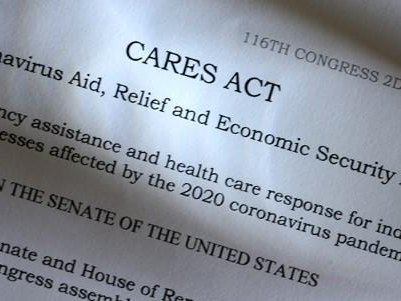
Blog: Coronavirus-Related Distributions and Loans
The Coronavirus, Aid, Relief, and Economic Security (CARES) Act made it easier to access savings in IRAs and workplace retirement plans for those affected by the coronavirus. This relief provided favorable tax treatment for certain withdrawals from retirement plans and IRAs, including expanded loan options.
Distributions: Certain distributions made from Jan. 1, 2020, through Dec. 30, 2020, from IRAs or workplace retirement plans to qualified individuals may be treated as coronavirus-related distributions. These distributions are not subject to the 10% additional tax on early distributions (including the 25 percent additional tax on certain SIMPLE IRA distributions).
Taxes on coronavirus-related distributions are includible in taxable income:
- Over a three-year period, one-third each year, or
- If elected, in the year you take the distribution.
Coronavirus-related distributions may be repaid to an IRA or workplace retirement plan within three years.
If you had an outstanding loan balance when you left employment, the plan sponsor usually offsets the loan balance against your benefit.
- For loan offsets in 2020, you have until the due date of your tax return (plus extensions) to repay that amount to another retirement plan or IRA.
- If you’re a qualified individual, you can treat the loan offset as a coronavirus-related distribution and have three years to repay to an IRA or include in income tax ratably over three years.
RMDs: An IRA owner or beneficiary who received an RMD in 2020 had the option of returning it to their account or other qualified plan to avoid paying taxes on that distribution. RMDs in 2020 that were not rolled over or repaid may be eligible to be treated as coronavirus-related distributions if the individual is a qualified individual. A 2020 RMD that otherwise qualifies as a coronavirus-related distribution may be repaid over a 3-year period or have the taxes due on the distribution spread over three years.
A withdrawal from an inherited IRA to a qualified individual may also be a coronavirus-related distribution. Income from the withdrawal may be spread over three years for income inclusion; however, the withdrawal may not be repaid to the inherited IRA.
The one rollover per 12-month period limitation and the restriction on rollovers to inherited IRAs did not apply to repayments made by August 31, 2020. The RMD suspension did not apply to qualified defined benefit plans.
The CARES Act included special rules for plan loans made to qualified individuals. Plans could suspend loan repayments for up to one year. However, typically, repayments resumed in January 2021 effectively give up to six years (instead of five) to repay a typical plan loan.



Engage us on Facebook
Follow us on Twitter
Tweets by @mymcmedia